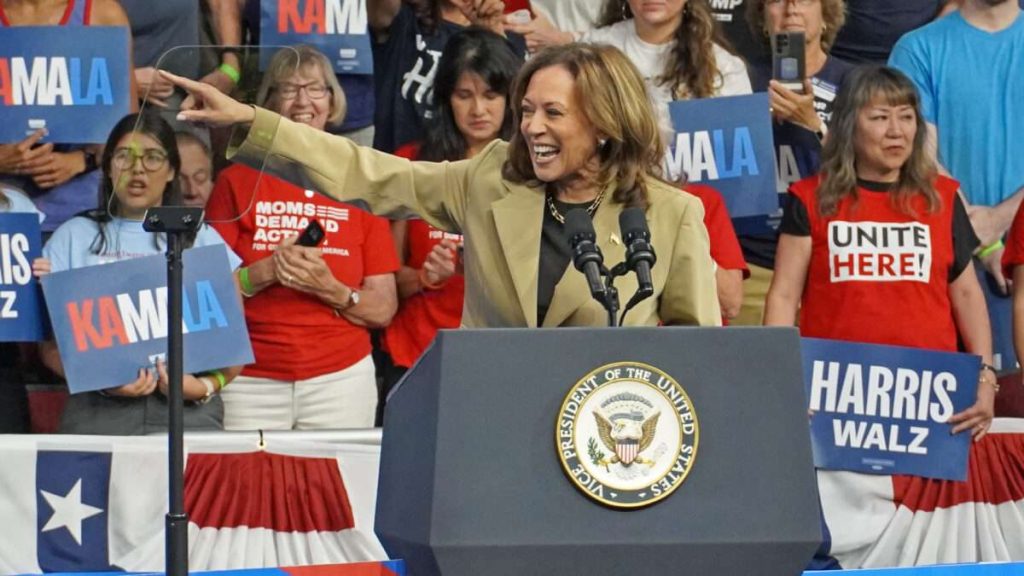Republicans and Democrats alike agree that the U.S. should do something about fentanyl, the synthetic opioid that is significantly more potent than heroin. It is often found mixed into street drugs, but not because addicts are clamoring for it: Rather, fentanyl is cheaper and easier to manufacture and smuggle, making it an attractive alternative when prohibitionist governments crack down on pain pills.
Unfortunately, neither of the major party seems willing to either admit the government’s own role in making the drug so dangerous, or to pursue an alternative to classic war on drugs policies.
This much was evident from an early answer at last night’s vice presidential debate between Sen. J.D. Vance (R–Ohio) and Minnesota Gov. Tim Walz.
Vice President Kamala Harris, Vance charged, “said that she wanted to undo all of Donald Trump’s border policies…and what it’s meant is that a lot of fentanyl is coming into our country. I had a mother who struggled with opioid addiction and has gotten clean. I don’t want people who are struggling with addiction to be deprived of their second chance because Kamala Harris let in fentanyl into our communities at record levels. So you’ve got to stop the bleeding.”
This has been a common refrain from Republicans: “She even wants to legalize fentanyl,” Trump said this weekend. (Harris has not said explicitly that she wants to legalize fentanyl, though in a 2019 questionnaire from the American Civil Liberties Union, she supported “decriminalization at the federal level of all drug possession for personal use” and said that “the opioid crisis has reaffirmed the failure of criminalization.”)
“We’re losing 300,000 people a year to fentanyl that comes through our border,” Trump said at a July campaign rally. In reality, the numbers are thankfully far lower: Around 107,000 deaths from synthetic opioids were reported in 2022, of which around 74,000 resulted from fentanyl.
Of course, the vast majority of fentanyl brought into the U.S. is not carried by illegal immigrants or the result of porous borders: From 2019 to 2024, 80.2 percent of the people arrested at the border with fentanyl were U.S. citizens, according to David J. Bier, director of immigration studies at the Cato Institute.
And as NPR reported last year, “the vast majority of illicit fentanyl—close to 90%—is seized at official border crossings.”
Nonetheless, Trump has pledged that if reelected, he would crack down on fentanyl sales and trafficking, even deploying the military against drug cartels and asking Congress “to ensure that drug dealers and human traffickers receive the death penalty.”
But if one were hoping that a potential Kamala Harris presidential administration may take a softer approach to fentanyl—which, again, has proliferated as a direct result of prohibitionist government policies—Harris herself is apparently happy to disabuse us of that notion.
“Today, I visited the U.S.-Mexico border and spoke with Customs and Border Protection officials about our progress to secure our border and disrupt the flow of illegal fentanyl into our nation,” Harris said over the weekend in a post on X.
“Harris pledged to double funding for the prosecution of trans-national criminal organizations and cartels, and modernize U.S. screening and vetting infrastructure,” Reuters reported about the trip.
On her campaign website, Harris calls fentanyl a “scourge” and brags about the steps she took both as vice president and as the attorney general of California to crack down on drug traffickers.
While Harris has admirably expressed support for marijuana legalization many times over the years, in her current run for president, her openness to pursuing alternatives to prohibition unfortunately does not extend much further than that.
“[Harris’] campaign platform is very clear that the overdose crisis is a criminal issue, not a public health one,” wrote Kastalia Medrano of Filter. “We’re going to arrest our way out of it after all.”
“Both candidates have prioritized criminalization and punishment responses to fentanyl and the overdose crisis. But this punitive approach is actually a primary driver of the overdose crisis which continues to claim lives despite 50 years of drug war policies,” according to a statement from Drug Policy Action, the advocacy arm of the Drug Policy Alliance. “Instead of more ‘lock-them-up’ proposals, candidates must get serious about reducing demand and saving lives by advancing health and economic solutions that work.”
The post Both Trump and Harris Would Crack Down on Fentanyl as President appeared first on Reason.com.







